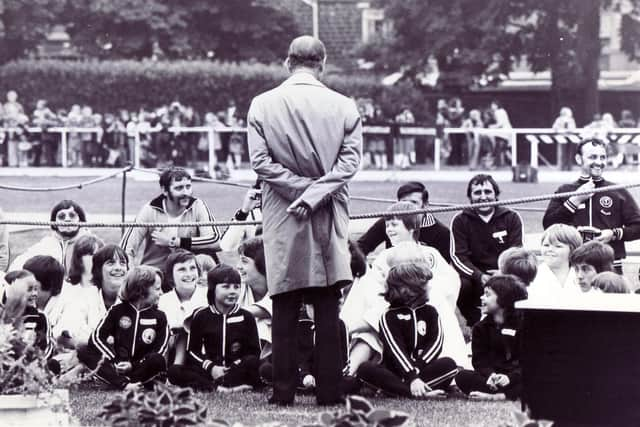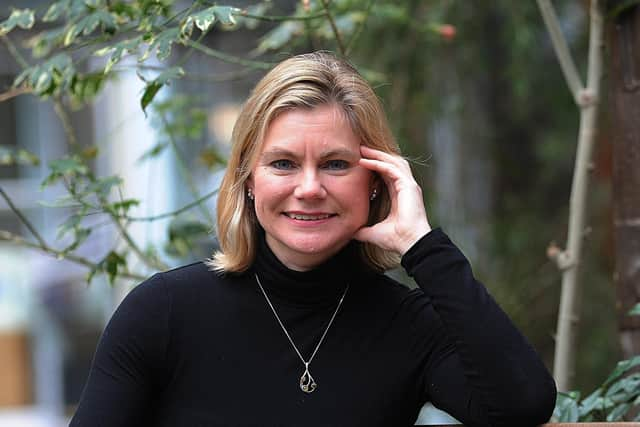Duke of Edinburgh’s Awards and belief in young people was ahead of its time – Justine Greening


The same can be said of my own grandmother, who passed away last month and was another highly independent 99-year old, who was also just days away from her own 100th birthday.
Alongside Prince Philip, she was part of a remarkable wartime generation who learnt, through the adversity of enduring the Second World War, to relish life and take it in their stride.
Advertisement
Hide AdAdvertisement
Hide AdIt was a generation that could not only see the bigger picture, and the bigger challenges but crucially had a level of ambition and spirit that those challenges could be met, with a single-mindedness to overcome obstacles in the way.


And through their experience of a country at war, they understood that a national challenge had to be met with a national response – communities, business and politics coming together.
Prince Philip was someone who had a clear sense that creating opportunities for young people would be crucial to Britain’s better future.
The Duke of Edinburgh’s Award scheme that he established in 1956 will be an enduring legacy for our country, giving young people the chance to have new experiences that raise aspirations, build self-belief, confidence and skills, and develop their potential as they approach adulthood.
Advertisement
Hide AdAdvertisement
Hide AdHugely innovative and transformative, over the 60 years since it began it has worked with a staggering eight million young people. Last year over 490,000 young people were taking part in the Duke of Edinburgh’s Award scheme.


Perhaps he was ahead of his time. But the reason his generation was able to have such a long-lasting imprint on the country we live in today was that it thought big and acted big. It had a sense of a national community and there was collective ownership of national problems.
We’ve seen talk of how this ‘post Covid’ time can be a ‘Beveridge’ moment, when we can think beyond our usual bounds. The Beveridge Report, produced by Sir William Beveridge, directly led to the foundation of the welfare state and NHS. It was published in 1942 at the height of the Second World War, and as he said at the time: “Now, when the war is abolishing landmarks of every kind, is the opportunity for using experience in a clear field. A revolutionary moment in the world’s history is a time for revolutions, not for patching.”
Indeed.
But the Beveridge Report could have been just another forgotten review, had it been put on the shelf and ignored. We’ve had plenty like that since. The reason it has had such longevity is the ambition of the report was then matched by action and a willingness to work together for the common vision of a better country that it presented.


Advertisement
Hide AdAdvertisement
Hide AdIt was a report by a Liberal economist, commissioned by a wartime Conservative Prime Minister, Winston Churchill leading a coalition Government, and then implemented by a Labour Prime Minister, Clement Attlee.
Covid has been the closest we have come since then to being a country at war that has had to work collectively to confront a national challenge. But we have risen to the challenge.
Tasks that might have normally taken years to achieve have been accomplished in weeks or months, not least the mass vaccination programme that has saved thousands of lives, delivered tirelessly by the very NHS set up 80 years earlier following Beveridge’s game-changing report.
Again, we are in a time when we must rebuild. Again, it is a time when we can see that the version of this country we were before this crisis wasn’t the one we could or should simply return to once crisis has passed. The big question is this: can we again match their wartime generation’s ambition and their action, to go beyond just more reports, and more rhetoric, to drive real change on the ground addressing the structural inequalities we face as a nation?
Advertisement
Hide AdAdvertisement
Hide AdI believe we can. Prince Philip leaves an amazing legacy through his work with young people. Our current crop of talented young people will have been forged through the adversity of our day, as his generation was theirs. As the results of the Duke of Edinburgh’s Award scheme shows, if they are developed and unleashed through being given opportunity, our young people’s talent is the first ingredient in Britain building back better.
I look ahead with optimism and with ambition. The Duke of Edinburgh understood that it is our young people who hold the keys to a better future for Britain.
And whilst we can mourn the passing of so many loved ones – I will sorely miss the chance to talk about the issues of the day with my grandma – perhaps the best tribute we can pay to their generation is to carry on in their fashion and put into practice the lesson they taught us.
Seize the day to transform the country through transforming futures and make it the better one we want.
Advertisement
Hide AdAdvertisement
Hide AdJustine Greening is a former Education Secretary. She comes from Rotherham.
Support The Yorkshire Post and become a subscriber today. Your subscription will help us to continue to bring quality news to the people of Yorkshire. In return, you’ll see fewer ads on site, get free access to our app and receive exclusive members-only offers. Click here to subscribe.
Comment Guidelines
National World encourages reader discussion on our stories. User feedback, insights and back-and-forth exchanges add a rich layer of context to reporting. Please review our Community Guidelines before commenting.